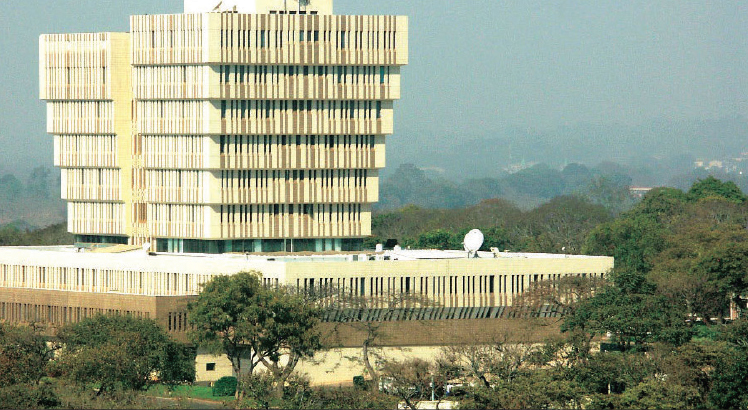Government, IMF engage on sticky issues
Minister of Finance and Economic Affairs Sosten Gwengwe says government has resumed talks with the International Monetary Fund (IMF) on sticky issues standing in the path of securing a new Extended Credit Facility (ECF).
During a media briefing in Lilongwe on Monday evening the minister said the two remaining issues included the submission to the IMF of the Debt Strategy by the recently recruited debt advisory firm, Global Sovereign Advisory.
The strategy is an analysis of how the Malawi Government will manage its debt in the proposed four years of the ECF programme.

Gwengwe said the second issue was the audit report by Ernst and Young on the Reserve Bank of Malawi (RBM) foreign exchange reserves misreporting, which he said will be ready tomorrow and submitted to the IMF.
He said: “We know that the audit report will reveal what we already know, but we are looking forward to the recommendations that will be part and parcel of the ECF programme that we are negotiating with the IMF.
“This will show that Malawi is an honest country and it is not its character to falsify figures.”
Gwengwe said the debt advisers have been working on the Debt Strategy to outline plans on how Treasury will manage debt to help Malawi move from a debt distressed to a moderate debt risk country.
In an earlier interview, Ministry of Finance and Economic Affairs director of debt and aid Nations Msowoya said Global Sovereign Advisory, a french firm, was selected after a competitive process.
He said the firm has also worked with Mali, Chad, Greece and other European countries to restructure their debts.
Msowoya said: “Initially, we have agreed to work together for six months on a daily basis.
“We have agreed on a number of weak areas. They are reviewing our debt portfolio and from there, they will be advising us on what steps to take”.
Treasury figures show that as at December 31 2021, total public debt stock stood at K5.8 trillion or 56.8 percent of rebased gross domestic product (GDP), a rise from K5.45 trillion or 58.8 percent of GDP in June 2021.
This equates to an increase of 7.1 percent in absolute terms, but a decrease of two percentage points as a ratio of GDP.
The end December 2021 total public debt stock comprised K2.8 trillion (27.3 percent of GDP) external debt and K3.04 trillion (29.5 percent of GDP) domestic debt.
During its visit to Malawi from May 25 to June 3, the IMF mission said the country needs to urgently address debt sustainability and resolve the misreporting to qualify for a new ECF programme.
Malawi University of Business and Applied Sciences associate professor of economics Betchani Tchereni is on record as having said missing out on the programme will have dire consequences on the economy.
He said there is an opportunity for Malawi to get the nod of the IMF if it improves on governance structures, including the fight against corruption.
Tchereni said: “Looking at the political economy of our country, others think we are being bullied by the IMF and we can do without them.
“We must not use this as an excuse to continue doing the wrong things. The misrepresentation of facts or misreporting has put us in an awkward position today.”
Traditionally, the IMF programme has been known for its “signalling effect” of triggering direct budget support although in recent years such an effect has been fading due to Malawi’s “confidence deficit” in the eyes of development partners.





